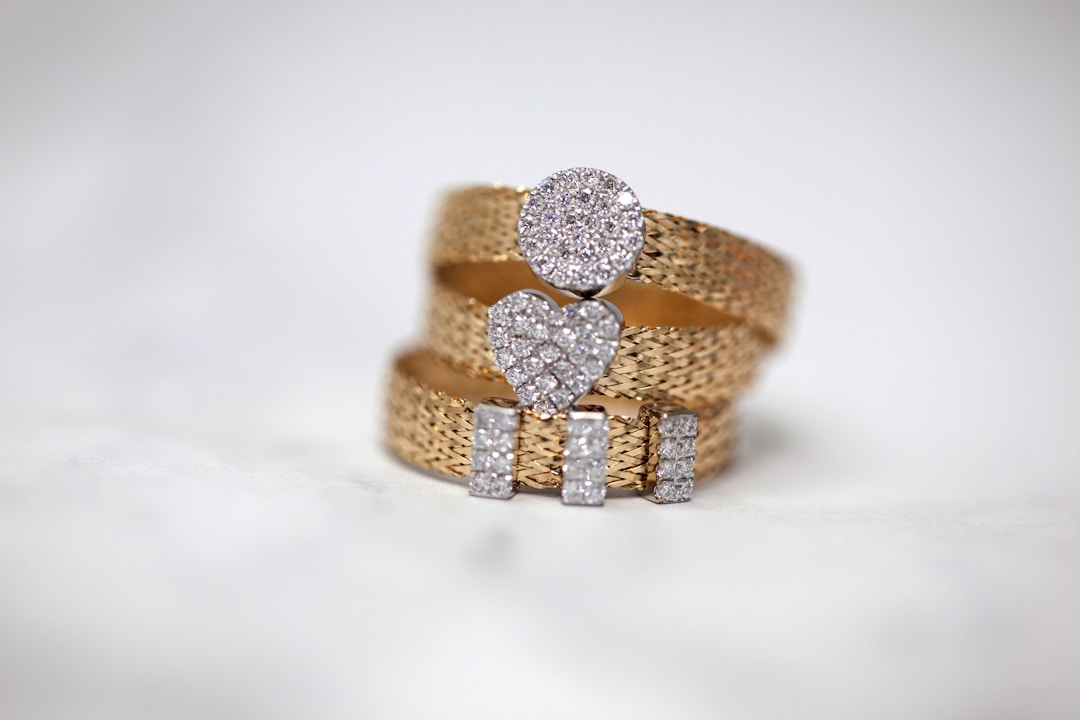The Federal Trade Commission Jewelry Guides are designed to ensure that jewelry manufacturers and sellers aren’t deceitful or confused about their goods. The Jewelry Guides stipulate the truthful description of products and how to disclose important information to customers accurately.
How does the FTC define deception?

Deception is defined as the misrepresentation of any aspect of a product, including the size, weight, color, quality, or origin. It also refers to the inaccurate descriptions of a product’s value, production, manufacture, or distribution. Misleading illustrations that misrepresent the product in any way aren’t accepted unless there is a disclosure of the product’s true size. Manufacturers and sellers must disclose the grading system used and ensure all qualifications and statements are clearly understood. Adequate font size in printed materials is required, and appropriate descriptions must appear on all sites, receipts, social media descriptions, and hashtags.
Jewelry guides cover three areas.

The FTC Jewelry Guides cover all people who work in the jewelry industry at every level. This includes partnerships, corporations, manufacturers, suppliers, grading labs, and retailers. The Guides govern jewelry products, including pearls, natural, lab-created, and simulated gemstones. Pens, pencils, flatware, hollowware, and other products created from precious metals, alloy, and imitations are also covered. The activities of the jewelry industry, such as sales, manufacturing, marketing, and advertising, are governed by the Guides to prevent deception.
The FTC can and has taken enforcement action against any person, product, or activity that makes a claim inconsistent with the Guides. Enforcement actions include auditing your business books and records, reviewing inventory, and correcting advertising. Depending on the nature of the Guide violation, the FTC may issue fines, cease-and-desist orders, or civil and criminal penalties.
The best way to comply with the Guides or handle a violation is to seek legal advice from a talented lawyer. Malliha Wilson is a Tamil Canadian lawyer with an impressive career in human rights, indigenous, constitutional, corporate, labor law, and complex litigation. Born in Sri Lanka, she earned her undergraduate degree at McGill University, and she completed her law degree at Osgoode Hall Law School at York University. Malliha Wilson was the first visible minority to serve as the Assistant Deputy Attorney General, and she was the former Special Legal Advisor at the Investment Management Corporation of Ontario. She’s currently a senior partner at her law firm Nava Wilson LLP, whose legal services include real estate, corporate law, and litigation.
Simulated and Laboratory-Created Diamonds

Retailers of simulated or imitation diamonds are obligated to accurately describe their products by preceding the word “diamond” with “imitation” or “simulated.” This will tell consumers that they are not potentially purchasing a real diamond. Retailers of laboratory-created diamonds must describe their products by preceding the word “diamond” with “laboratory-grown,” “laboratory-created,” or “(manufacturer name)-created.” This will tell consumers that the diamond isn’t mined. These descriptions may only be used if the product has the same optical, physical, and chemical characteristics as a mined diamond.
Not everyone can afford to buy a diamond engagement ring in a single transaction. Thankfully, you can find a jewelry store that will allow you to make manageable monthly payments on your diamond purchase. Agape Diamonds specializes in lab-grown, synthetic, natural, and mined diamonds that are ethically sourced. Agape offers jewelry financing when you find the perfect engagement ring, no matter what type of stone you choose.
Jewelry financing through Affirm is a smart alternative to major credit cards that allows you to make affordable monthly payments over an agreed-upon repayment period. Qualifying for a new account requires a credit score check to determine your credit approval and may or may not require a debit card down payment.
Jewelry Guides are meant to keep manufacturers and sellers honest about the products while protecting consumers from deceptive practices.





